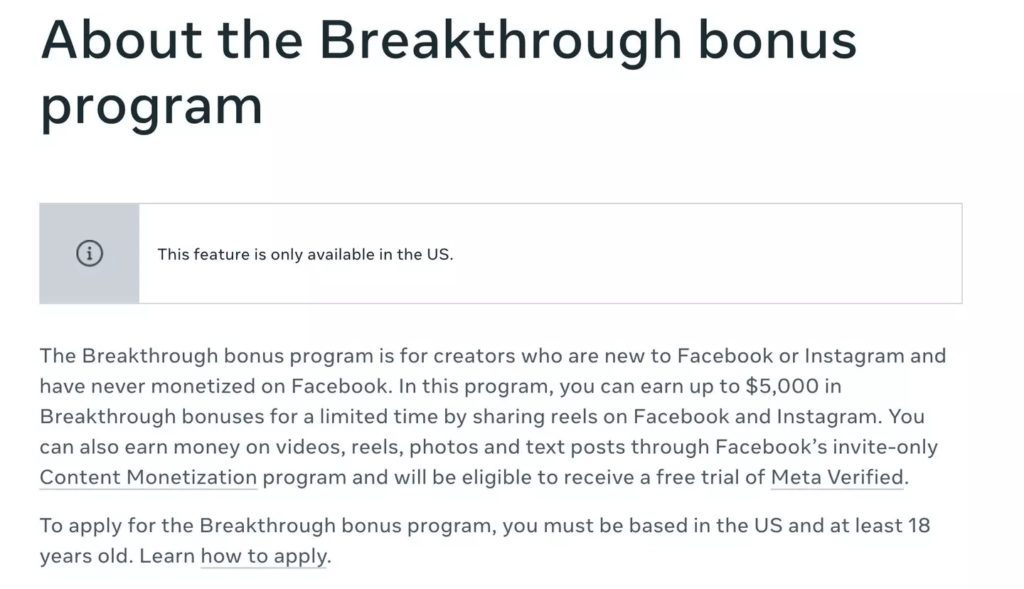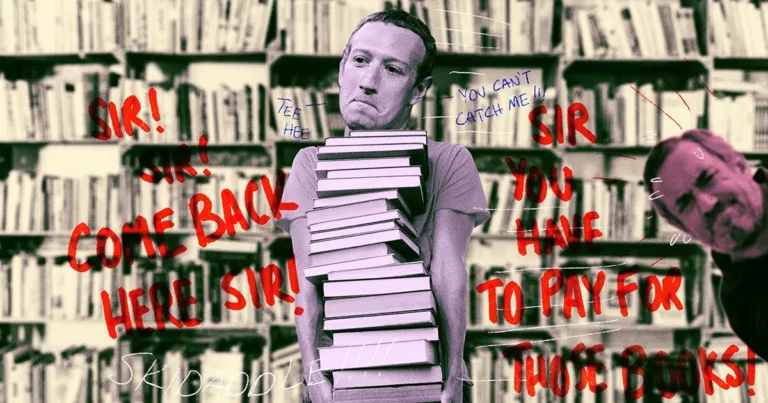Meta Offers Creators $5,000 to Join Facebook and Instagram Amid TikTok’s Uncertain Future

The Looming TikTok Ban
TikTok, the wildly popular short-form video platform, has found itself in the crosshairs of political and regulatory scrutiny. Under Donald Trump’s presidency, the platform became a focal point of his administration’s concerns over national security and foreign influence. One of his executive orders, dubbed the “Application of Protecting Americans From Foreign Adversary Controlled Applications Act,” aimed to restrict TikTok’s operations in the United States unless ByteDance, its Chinese parent company, agreed to a deal ensuring at least 50% U.S. ownership.

Trump warned that failing to meet these terms would render TikTok “worthless.” Although TikTok managed to stay operational for its 170 million U.S. users, it remains banned from app stores. This restriction has led to a peculiar trend of users attempting to sell phones preloaded with TikTok on platforms like eBay, further illustrating the app’s precarious standing.
Meanwhile, political figures like Senator Tom Cotton have highlighted the potential liabilities for companies hosting or distributing the “communist-controlled” app. With the platform’s fate hanging in the balance, TikTok’s uncertain future has left a void that competitors like Meta are eager to fill. The situation has created an environment ripe for disruption, positioning Meta to capitalize on TikTok’s potential downfall.
Meta’s Strategy to Attract TikTok Creators
Meta is wasting no time seizing the opportunity created by TikTok’s uncertain status. The company has launched its “Breakthrough Bonus Program”, a lucrative initiative designed to lure content creators away from TikTok and onto its platforms, Facebook and Instagram. The program offers creators up to $5,000 in bonuses, provided they meet specific requirements within their first 90 days of signing up.
To qualify, creators must post at least 20 reels on Facebook and 10 reels on Instagram within 30 days of accepting the program’s terms. These videos must be original content and cannot be reposted from other platforms. Additionally, participants must be new to Facebook monetization, ensuring that the program targets fresh talent rather than established creators.
The incentives don’t stop there. Meta is offering perks like a free subscription to its blue-check verification system, although eligibility is determined on a case-by-case basis. While the program’s rules may seem strict, the potential rewards make it an enticing offer for creators seeking financial and platform stability.

Meta’s strategic timing is hard to ignore. As TikTok grapples with political challenges and public scrutiny, Meta’s aggressive recruitment efforts signal its intent to dominate the short-form video market.
Rules and Caveats of Meta’s Bonus Program
Meta’s Breakthrough Bonus Program, while generous, comes with a set of detailed rules and restrictions. First and foremost, creators must ensure that their reels are publicly available and shared on at least 10 separate days within the program’s timeframe. Additionally, the content cannot be promoted or boosted as ads, further emphasizing the need for organic engagement.
The bonus payouts are calculated based on Meta’s evaluation of a creator’s social presence, adding an element of subjectivity to the process. Payment is processed through the Facebook payout account set up during the application, but creators must adhere to all guidelines to ensure eligibility.
One of the program’s standout requirements is exclusivity. Creators cannot share content from other platforms, ensuring that Meta retains the full creative output of its participants. This exclusivity may pose challenges for creators who rely on cross-platform promotion to grow their audiences.
Despite these limitations, the program’s structure demonstrates Meta’s commitment to nurturing original content on its platforms. By targeting creators who are new to Facebook monetization, Meta aims to build a fresh and vibrant community that mirrors the success of TikTok’s user base.
Meta’s Expanding Arsenal Against TikTok
The Breakthrough Bonus Program is just one part of Meta’s broader strategy to challenge TikTok’s dominance. Recently, Meta unveiled its Edits app, a video editing tool that bears a striking resemblance to ByteDance’s CapCut. The app is designed to streamline the content creation process, further enticing creators to make Meta their platform of choice.
Meta has also introduced new affiliate link features for shoppable content, signaling its intent to rival TikTok Shop, ByteDance’s e-commerce integration. These features allow creators to monetize their content through product recommendations, a model that has proven successful for TikTok.
Even Instagram’s design changes reflect Meta’s ambition to compete directly with TikTok. The platform has shifted from its traditional square-post format to a vertical, full-screen layout inspired by TikTok’s interface. This evolution highlights Meta’s willingness to adapt and innovate to capture the attention of short-form video audiences.
By investing in new tools and incentives, Meta is positioning itself as the go-to platform for creators and businesses alike. Its efforts underscore the high stakes of the battle for dominance in the short-form video market, a space that TikTok has revolutionized but may not continue to control.
The Future of TikTok and Meta’s Role
As TikTok navigates an uncertain future, Meta’s aggressive expansion underscores its ambition to fill any gaps left by its rival. TikTok CEO Shou Zi Chew, once a surprise guest at Trump’s inauguration, may now find himself grappling with the rapid rise of a reinvigorated Meta. The competition between these tech giants is a testament to the evolving landscape of social media and content creation.
Meta’s strategic moves, from the Breakthrough Bonus Program to the introduction of TikTok-inspired features, reflect a calculated effort to solidify its position in the market. However, questions remain about the sustainability of these initiatives. Will creators embrace Meta’s vision, or will they remain loyal to TikTok despite its challenges?
Meanwhile, the broader implications of the TikTok ban raise concerns about the future of international tech companies operating in the U.S. The political and regulatory pressures faced by ByteDance could set a precedent for how foreign-owned platforms are treated in the American market.
For now, Meta’s aggressive tactics suggest that it is more than prepared to step into the void if TikTok falters. Whether these efforts will pay off remains to be seen, but one thing is certain: the battle for short-form video supremacy is far from over.
Conclusion: A New Era for Social Media Platforms?
The ongoing battle between Meta and TikTok represents a turning point in the social media landscape. With TikTok’s future in the U.S. shrouded in uncertainty, Meta has positioned itself as a formidable contender by offering attractive incentives to creators and introducing innovative tools. The Breakthrough Bonus Program and TikTok-inspired features are bold moves designed to secure Meta’s dominance in the short-form video market.
However, this battle raises broader questions about the role of political influence in shaping the tech industry. TikTok’s regulatory challenges demonstrate the precarious position of foreign-owned companies operating in the U.S., while Meta’s aggressive tactics underscore the lengths companies will go to maintain market share.
For creators, this competition could open doors to new opportunities. With platforms vying for their attention, content creators may find themselves in a uniquely advantageous position, able to leverage better incentives and support.
As the story unfolds, one thing is certain: the race to dominate short-form video content is far from over. Meta’s calculated moves and TikTok’s resilience will define the future of social media and content creation, shaping how audiences and creators interact in the years to come.
Featured Image Credit: Anna Barclay/Contributor / SOPA Images/Contributor / Getty






